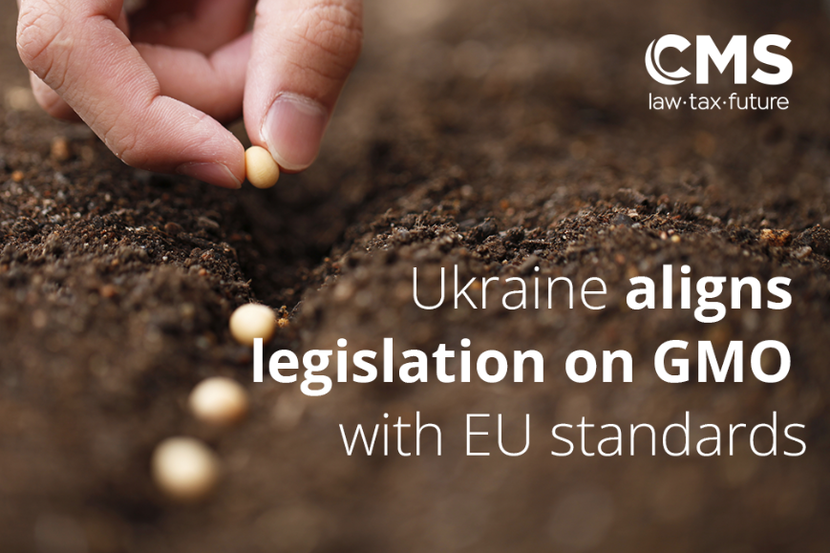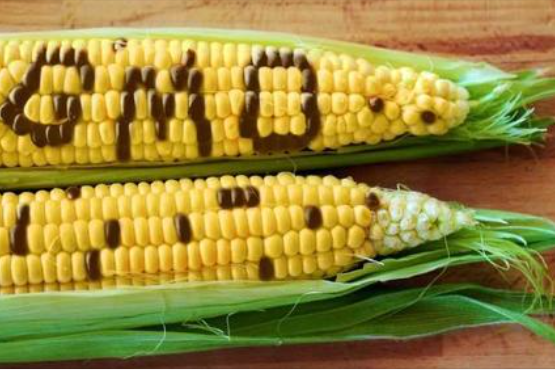GMO policy in Ukraine

2024 - Ukraine aligns legislation on GMO with EU standards
CMS Ukraine , published on 11 January 2024
To synchronise Ukrainian and EU legislation on GMO, the parliament of Ukraine passed a new Law on State Regulation of Genetic Engineering Activities and State Control Over the Circulation of Genetically Modified Organisms and Genetically Modified Products to Ensure Food Security on 23 August 2023, which will enter into force on 16 September 2026.
The current legislation on GMO is highly confusing and has obstructed the access of GMO products to the Ukrainian market. As a result, no GMO products have been registered in recent years even though they were available on the market. Thus, according to the USDA's UP2022-00 report "Biotechnology and Other New Production Technologies Annual" (14 November 2020), in Ukraine the unofficial cultivation of GMOs currently involves approximately 50% to 65% GMO soybeans, 10% to 12% GMO rapeseed, and less than 1% GMO corn.
This situation arises from loopholes within the regulatory framework. The sectors most profoundly affected by these issues include food, agriculture, animal feed , and R&D.
In contrast to the outdated legislative framework, the new Law is more structured and transparent.
Key definitions
Under the Law, the definitions of “genetically modified products”, “GM products as feed”, “GM products as a food”, and “genetically modified source” have been aligned with Directive 2001/18/EC.
‘Containing GMO’ labelling
The labelling requirements for products containing GMOs will be significantly clarified. The threshold, however, for “containing GMO” labelling still applies to products with over 0.9% of GMO.
Public registers
The current legislation on GMOs includes three separate registers covering GMO-based agricultural plant varieties, animal breeds, GMO sources in food and feed, which in practice are simple Excel tables.
The Law encompasses plans to establish state registers designed to streamline the documentation of issued permits for GMOs, genetic engineering entities, and GMO products in a comprehensive manner. It is anticipated that these registers will be synchronised with relevant European databases to ensure consistency in standards.
Transparency requirement
The application for registration of a GMO along with the registration dossier (except for any confidential information) will be made publicly available on the official website of the governmental authority responsible for registration. This will allow any interested stakeholder to raise objections regarding registration within a three-month period following the date of publication.
Governance
The government will establish the Interdepartmental State Commission on GMO Risk Assessment to evaluate risks associated with GMO research and testing in open systems, as well as the state registration of GMOs.
In addition, the government will launch the Scientific and Methodological Centre for GMO Testing to develop and validate research methods and provide expert opinions on compliance with them.
Notably, there is no plan to create a separate regulatory body specialised in GMO issues. Instead, various governmental agencies will assume specific roles within their respective areas of expertise:
-
the Ministry of Health (MOH) will oversee monitoring for potential adverse effects of GMOs on human health;
-
the Ministry of Environmental Protection and Natural Resources will be responsible for developing and endorsing procedures for the neutralisation, disposal, and destruction of GMOs that are unsuitable or prohibited for use;
-
the Ministry of Agriculture will handle the state registers.
Post-market monitoring & inspections
The legislator has incorporated post-market monitoring procedures and introduced the concept of and requirements for GMO traceability.
Scheduled and unscheduled inspections will be conducted to prevent and detect violations related to the handling of GMOs. The inspections in the GMO sphere will be conducted by different governmental agencies, including the MOH and the State Environmental Inspection within their scopes of responsibility.
Additionally, the government will adopt subordinate legislation to monitor the transborder circulation of GMOs.
Compliance and liability
The Law provides a well-defined system of penalties, which are contingent upon the nature of the violation and the type of violating market player.
Additionally, the Law authorises competent agencies to order product recalls, order companies to withdraw from the market, and order the destruction of GMOs and/or GM products. These agencies can also revoke permits in the event of a violation.
Restrictions
The Law introduces bans on the cultivation and circulation of GMOs:
-
GMO corn is banned permanently;
-
GMO sugar beet and rapeseed are restricted for five years from the date of the Law's entry into force (until 16 September 2031).
The Cabinet of Ministers of Ukraine retains the authority to restrict the cultivation of specific genetic plant species or GM sources nationally, or within designated regions of Ukraine.
The implementation of this Law is expected to bring transparency and a level play field to the GMO market of Ukraine. Additionally, it aims at fostering the development of new GMOs, potentially offering innovative solutions to the challenges faced by agriculture, food and feed sectors.
Overall, this legislation marks a significant step in aligning Ukraine's GMO regulations with the best international standards and ensuring responsible GMO handling while promoting technological advancements.
For more information on this new Law and GMO regulations in Ukraine, contact your client partner or these CMS experts: Borys Danevych, Anastasiia Kulykova, Ruslana Piatushko.

2023 - Ukrainain Parliament passed a law on strengthening control over GMO products
The Verkhovna Rada adopted law "On state regulation of genetic engineering activities and state control over the circulation of genetically modified organisms and genetically modified products to ensure food safety."
he Verkhovna Rada of Ukraine adopted in its entirety draft law No. 5839 "On state regulation of genetic engineering activities and state control over the circulation of genetically modified organisms and genetically modified products to ensure food safety."
Implementation of the Law will make it possible to achieve systemic compatibility of Ukrainian legislation with EU legislation in the field of handling GMOs, as the document is based on 8 main acts of European Union law in the field of GMOs. The law introduces European mechanisms for the state registration of GMOs, a ban is introduced on the cultivation and circulation of: GMO corn - permanently, GMO sugar beets and rapeseed - within 5 years from the date of entry into force of the Law.
Requirements for the use of the labels "with GMOs", "without GMOs", "produced from GMO raw materials" are also established in accordance with the norms of EU legislation. The consumer must be sure of the products he consumes and have the right to choose.
The State Register of GMOs, which is managed by the Ministry of Agrarian Policy, is being created.
The implementation of the Law will contribute to increasing the efficiency and transparency of state regulation procedures in the field of handling GMOs, creating clear and transparent rules for conducting business related to GMOs, de-criminalizing the GMO market.
The law enters into force on the day following its publication, and is put into effect three years after its entry into force.